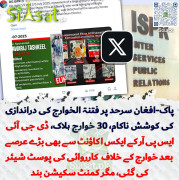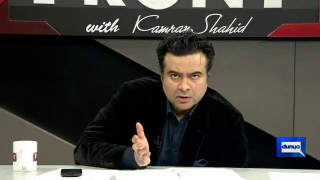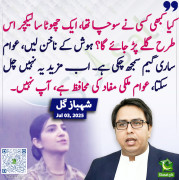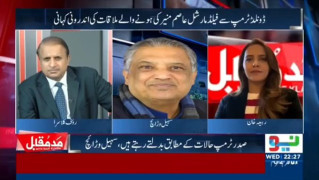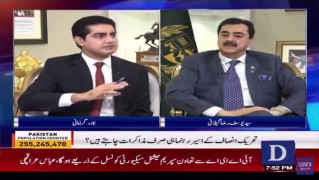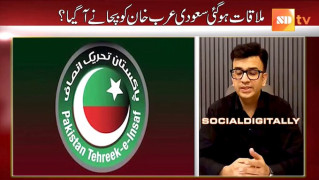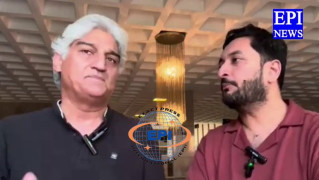@ Seventytwo
i have only few simple short & straight forward questions
1- 3000 deaths in 9/11 cost the world of about 137,000 civilians (40,000 approx in Pakistan), 780,000 misplaced, injured & disabled till 2011 & many more to come. Isit Justified?
2- what if a muslim country attacks USA in response to any terrorism act by Americans. u can take the example of osama bin ladin operation, that held without the permission of Pakistani authorities and also Slala chekpost attack by US airforce.
3- i want to know what common people in USA think abt the blasphemous movie abt our Holy Prophet PBUH. do u think its really the freedom of speech. i want to know wt exactly is the definition of freedom of speech according to a common person in USA.
4- can common ppl in USA talk freely abt HoloCast ?
Thnx & Regards
Thanks for the welcome and the questions!
1) That certainly does not seem justified. I don't know how the US can justify that. I don't think a lot of people here in the US think about things like that. It is mentioned in the media, but not everyday. Some people are aware of the collateral damage Iraq and Afghanistan have caused, but it is typically justified by some in the US by saying that collateral damage is just a natural part of war and fighting illusive terrorists. If the general public were made aware of the injured and misplaced and disabled that are due to collateral damage, there would be far more doubt and outrage. I know the drone strikes and the military insertions into Pakistan are really disliked (I wouldn't want Pakistan to be doing that in the US!), but those tactics are seen in the US as far more surgical and precise than simply sending an entire army to the area, so there is less outcry against it.
2) I'm not quite sure what your question is here, but I think you're pointing to the fact that if some other country dropped troops into the US or was sending missiles into the US to fight some extremist group, the US would be very angry and would not allow it. Of course, that is exactly what we are doing in Pakistan. It is a double-standard, you are right.
3) Almost everyone in the US thinks the movie is ridiculous. Everyone recognizes that it is highly insulting to Muslims, and nobody wants to be associated with the guy who made the movie. He has very few friends now. However, his speech and his opinions are protected under our constitution's 1st amendment, which guarantees freedom of speech. Before I start discussing the definition of freedom of speech, I should explain that when the founders of the US wrote the constitution, they purposely wrote the amendments to be vague, because they were wise enough to know they could not foresee the obstacles this country may face in the future. Therefore, there are many interpretations of the constitution, and so there are many interpretations of what "freedom of speech" means. Over the years and over many court decisions, "freedom of speech" has generally come to mean something more like "freedom of expression as long as it does not infringe on other people's freedoms". This is very general. The idea of "freedom of speech" is something that is
always being challenged in the US. New situations or new cases or new forms of speech are constantly testing this idea. There is a group called the Westboro Baptist Church (some extremist Christians) who go to funerals of dead American soldiers and make claims about how the soldier was a homosexual and that's why he (or she) died and all sorts of other things. Obviously, this is a horrible thing to do... the family is trying to lay to rest their son or daughter and this extremist group comes over and starts harassing them, making false claims and generally being very obnoxious. Many people have punched these guys for doing this, and many people have sued them and taken them to court. It has been ruled that this is protected under "freedom of speech", but there is an ongoing debate here in the US about where to draw the line between harassment of this kind and free speech. As far as I know, there have been some laws enacted just for this case to disallow picketing and protesting within 300ft of a funeral or something like that. They are still allowed to say what they want outside that distance, though.
So, back to the movie... Yes, it falls under free speech here in this country and is legal. That is widely agreed upon. It doesn't mean that anyone agrees with their views though...
4) Yes. People can say whatever they want about the holocaust. You can joke about it if you want, you can debate about it, you can make movies about, you can do whatever. Of course, if you start joking about it, some people may get offended and will lose respect for you. In the US, freedom of speech allows you to make fun of basically anything. You can speak bad about the government, or your neighbor, or Jews, or Muslims, or Christians, or Mexicans, or the Chinese, or the Europeans, or anyone else. You are perfectly allowed to say whatever you want, but it can come back and bite you because people remember what you say and may not like you anymore or may not do business with you. So, most people don't say mean things like that. Also, it should be noted that making threats against people is usually not considered free speech and can get you into trouble.


